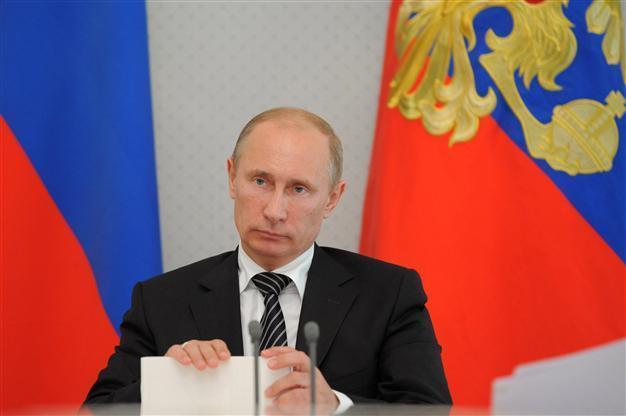Russia-US ties see chill on aid agency
MOSCOW / WASHINGTON

Russia’s Putin is known for his tough stance against foreign-based NGOs. AP photo
Russia has forced the United States to close its aid mission in Moscow, in a blow to U.S. efforts to improve ties and a step that may aid the Kremlin’s crackdown on pro-democracy groups.Moscow accused the United States of using its aid mission, the U.S. Agency for International Development (USAID), to try to influence Russian politics and the outcome of elections. The Foreign Ministry said in a statement that it had also been worried by the work of USAID in regions including the North Caucasus, where Moscow faces an Islamist insurgency. “It’s about the attempts to influence the political processes, including elections of various types, and institutions of civil society though the distribution of grants,” the statement said, according to Agence France-Presse.
Moscow has given USAID until Oct. 1 to cease operations after two decades and more than $2.6 billion spent to combat disease, protect the environment, strengthen civil society and modernize the economy.
It planned $50 million in programs this year. About 40 percent of the overall funding goes directly to Russian organizations.
No criticism from US
U.S. State Department spokeswoman Victoria Nuland did not criticize Russia for its action. However she did emphasize that the money went on a wide variety of initiatives, such as fighting AIDS and tuberculosis, helping orphans and victims of trafficking, and improving the protection of wildlife and the environment, the Associated Press reported. Analysts have suggested a political motive in the closing down of the mission, as the move will reduce foreign support for Russian groups that promote democracy and the rule of law, which are viewed with deep suspicion by the Kremlin.
Vladimir Putin, who served eight years as president until 2008 and then four years as prime minister, took office in May for a third presidential term after winning nearly two thirds of the vote in an election that international monitors say was skewed in his favor. In a sign of his reluctance to brook dissent, Putin has pushed through new laws to raise fines for protesters, stiffen punishments for defamation and put new controls on foreign-funded campaign groups.
“Russian authorities have made clear for the better part of a decade that they see Russia as a great power and a provider of assistance, not a recipient,” Reuters quoted Matthew Rojansky of the Carnegie Endowment for International Peace as saying. “Add to that tension over the pre- and post-election protests, which the Kremlin alleges were orchestrated by U.S.-funded NGOs [non-governmental organizations], plus the deep disagreement over U.S. democracy-promotion activities in the Middle East, and you can see why Russia may have taken this decision now,” he added.
The Russian groups most affected include GOLOS, which monitors the conduct of elections, and Memorial, a human rights watchdog. “The Russian government’s decision to end all USAID activities in the country is an insult to the United States and a finger in the eye of the Obama Administration,” Senator John McCain, an Arizona Republican, said in a statement. “There should be no confusion as to why this decision was made: an increasingly autocratic government in Russia wants to limit the ability of its own citizens to freely and willingly work with American partners on the promotion of human rights, democracy, and the rule of law in Russia,” he added.
















